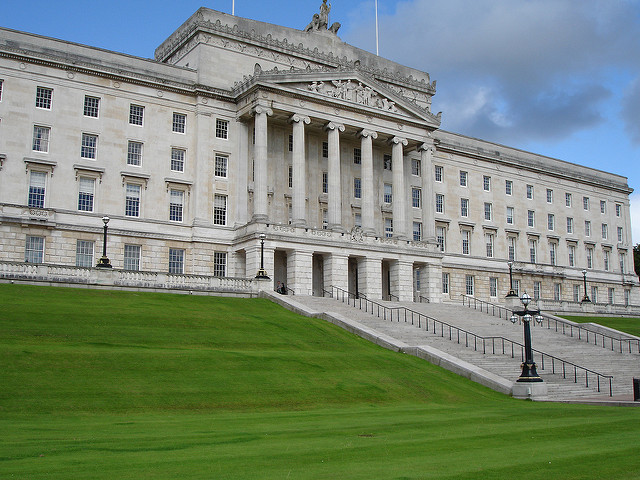Brexit, the island of Ireland and the Good Friday Agreement
It would be regrettable if Brexit undermined the efforts made to build constructive relationships across these islands in the last 20 years says Professor Colin Harvey.

The island of Ireland is entering new constitutional and political terrain. One part of the island will remain within the EU and the other part seems destined to leave. That Northern Ireland voted against Brexit carries particular resonance in a region where the notion of consent is frequently contested. The disruptive and destabilising aspects of Brexit have been exhaustively examined.
The connection to the Good Friday Agreement is clear. The EU is mentioned in the document, and EU law is central to the statute enacted to give it effect in the UK, the Northern Ireland Act 1998.
Brexit will unsettle many of the assumptions of the peace process around British and Irish identity and exacerbate divisions. National identity will become a signifier not only of national difference but also of those who are EU citizens and those who are not.
The border on the island will change into an external border of the EU, with all that this implies. This is taking place without a regional government in Northern Ireland and in a society that continues to be concerned about retaining the gains of the peace process.
There are three senses in which the Good Friday Agreement is relevant to these discussions. First, it is constructed in terms of foundational values and principles. That is easily overlooked, but it is essential to any serious assessment. A way was found to promote relational thinking that encouraged ‘both/and’ rather than ‘either/or’ reflection on how these islands engage with each other.
This was informed by European trends, as well as comparative and international experience of respect for values such as equality and human rights. The failure to deliver on these promises of peace should not detract from the principled focus of the 1998 Agreement.
Second, the Agreement addressed British-Irish identity matters through carefully crafted formulas that facilitated honourable compromises. That is too often neglected now, as is the scale of constitutional reform that has been undertaken in Ireland as a consequence. This remains a delicate and fragile balancing act, made all the more difficult as a result of Brexit.
Resolving this in a credible way will require creative thinking that should include more detailed codification of the concept of ‘equal citizenship’ in Northern Ireland but also practical application across these islands. There are already special arrangements in place, so this would be a matter of formalising much of what is there now. That looks more like a project of conservation than any radical new agenda for constitutional change.
Third, some of the answers to the problems raised by Brexit are already there and can be found in the institutions created by that Agreement. There needs to be much more focus on the British-Irish Intergovernmental Conference, the British-Irish Council and the North-South Ministerial Council (to name just a few). The multi-stranded nature of the Agreement meant that people were already thinking in the 1990s about institutional co-operation across these islands.
It is time to bring these Good Friday Agreement institutions into the light once again and ensure that they are known about and used effectively. If there is an additional need to enhance the internal UK intergovernmental structures of co-operation, then that should be considered too. But again, the Agreement provides the starting point.
Much careful thought went into the Good Friday Agreement. Although the drama of the negotiations attracts considerable attention, it is wise to note the focus in that document on matters of design and architecture. Many of the ideas evolved over time and were shaped by contextually sensitive consideration of how to transform conflict.
There is still much to learn from this experience. Brexit has significant implications for the island of Ireland; it is a minority preference in Northern Ireland. There is good reason to use the experiment that was the Good Friday Agreement as a guide and template for the approach in the months and years ahead.
It would be regrettable if Brexit undermined the efforts made to build constructive relationships across these islands in the last 20 years.
Article originally appeared on the UK in a Changing Europe blog.
The featured image has been used courtesy of a Creative Commons license.




